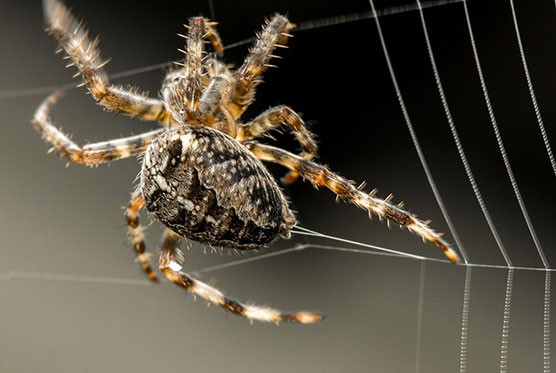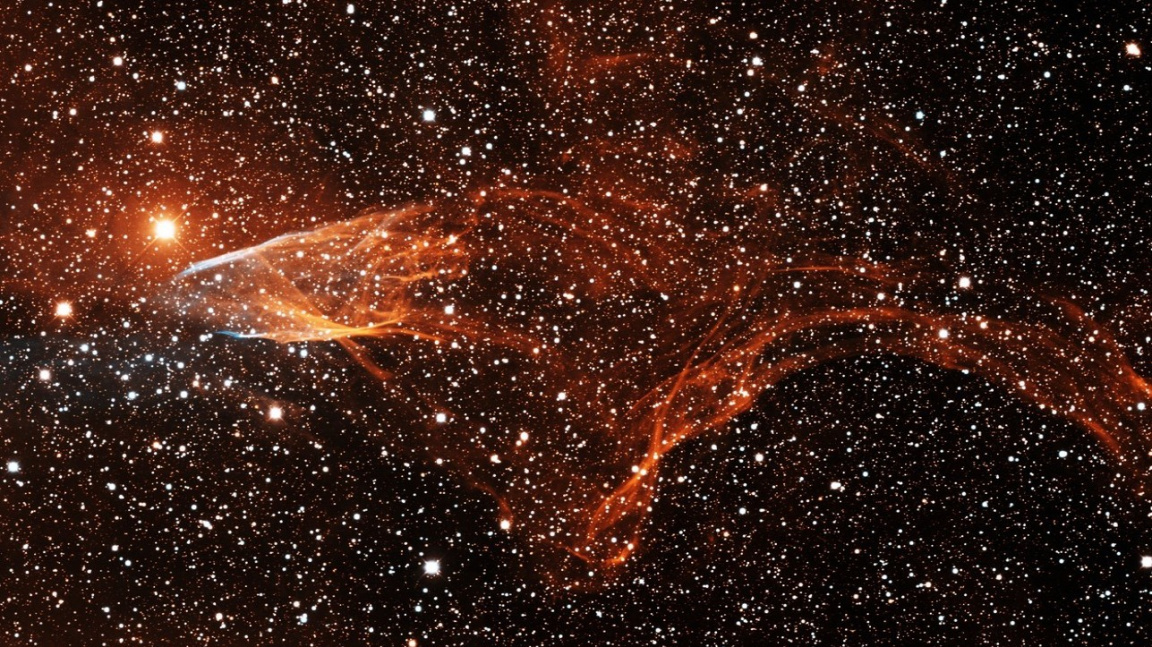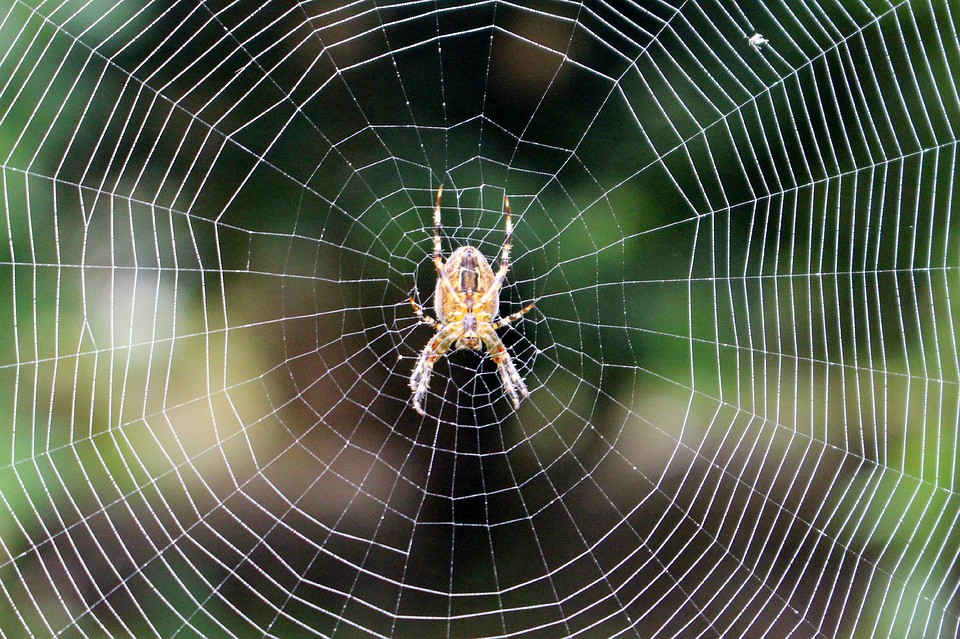
Have you ever noticed fine threads hanging from the ceiling in a remote corner of your home or a small spider landing on top of your work desk? Spiders are fantastic creatures. Their webs are more common during the monsoon season but did you know that they are actually stronger than steel? There are 40,000 species of spiders on Plant Earth, everywhere except Antarctica. They belong to the kingdom Animalia and to the class Arachnida and order Araneae. These arthropods have eight legs, chelicerae with fangs that may give quite a venomous bite, and spinnerets that extrude silk. Spiders are predators and feed on small insects, but larger species are recorded to have preyed upon birds and lizards. “Spiders use a wide range of strategies to capture prey: trapping it in sticky webs, lassoing it with sticky bolas, mimicking the prey to avoid detection, or running it down. Most detect prey mainly by sensing vibrations, but the active hunters have acute vision and hunters of the genus Portia show signs of intelligence in their choice of tactics and ability to develop new ones.” Some species like the Black Widow and Brown Recluse spider are poisonous and can cause serious damage to human beings leading to death. Most spiders eat flies and other insects by trapping them in their webs. They are known to inject a digestive fluid into their prey and suck out the liquified remains. Every species produces silk but not all of them build webs. The silk is made up of flexible protein fiber and is very strong. They spin webs to trap their prey, build tiny chambers for their eggs, and to line their homes. Many spider species can run fast and jump quite high. Their heads and bodies are covered with tiny hairs which help them sense movements around them. “A thread of spider silk is five times stronger than a steel thread of the same weight.”

Having said that let us have a look at the process of making steel and its threads to draw an analogy with the threads a spider produces. Steel is made from iron ore or scrap by getting rid of impurities such as nitrogen, silicon, phosphorous, sulfur, and excess carbon. Alloying elements such as manganese, nickel, chromium, carbon, and vanadium are then are added to it. The steelmaking process requires a great deal of care to avoid dissolved gases such as oxygen and nitrogen and to ensure the quality of liquid steel.
Earlier, in the medieval age, crucible steel was made by melting cast iron or pig iron because of its high carbon content and low melting point as steel and iron were very difficult to melt using charcoal. India, Sri Lanka, and Central Asia have a rich history of producing steel swords and other items using the wootz process.
The modern steelmaking process has three steps. The first step involves smelting iron into steel. The second step involves adding or removing other elements such as alloying agents and dissolved gases. Steel sheets, rolls, etc., are formed in the third step. The whole process of steelmaking requires lots of energy for smelting which is often done at blast furnaces or electric furnaces that require a high voltage of electricity. We learned that a lot of effort, knowledge, will, and money is required to make simply one batch of steel sheets. Huge machines are required along with a massive team to work in a steelmaking factory. So, it is logical to say that in its usable form, the steel did not occur on its own- there is a group of people who work behind the scenes. Similarly, do you not think it is reasonable to say spiders have a Maker too? The similar characteristic features spiders exhibit are universal. Hence, is it not pointing to the One Hand who is responsible for creating them? Moreover, spiders are part of the ecosystem at large, so, what is the amount of knowledge, will, and power the Maker of the spiders possesses? Who has given spiders the ability to spin webs that are stronger than steel of the same weight? So, do you not think that spiders are created by someone who has Absolute Knowledge? Are spiders not a sign of the One who is All-Wise and the Best of Fashioners? Spiders are connected to the entire universe because these tiny animals are dependent upon other insects to survive. They are also dependent upon the air, sun, water, etc. This long chain of interdependence indicates their interconnectedness.

In turn, this interconnectedness proves that the One who has created spiders must be the One who has created the whole cosmos. Surely, He must be the Most Gracious who has caressed the cosmos artistically to perfection. He must be extremely Powerful to execute everything which works in perfect synchronization and harmony with each other.
Spiders might not be everybody’s favorite creatures. They appear to be a nuisance by spinning webs anywhere and everywhere but, like everything else, spiders are indeed samples of God’s bounties. They might themselves be pests but they are also pest controllers because they feed on mosquitoes, fleas, flies, etc. and help us curtail various diseases. Their venom is used for medicinal purposes.

On a lighter note, what if there were no spiders? We wouldn’t have the Spiderman series! Spiders may be commonly associated with spooky movie scenes but their web designs have also inspired many artists. Spiders put much effort into building webs- a phenomenon that serves to teach us many lessons.
By witnessing the action of spiders, we learn to work with the innate potential that God gave us. Spiders are designed to spin webs. We are also designed with a purpose. Our purpose is to worship the Creator through the use of good words and actions. We must adopt the moral values bestowed upon us by the Creator of the Universe to become better human beings. We must be hardworking and diligent to unleash our potential for good outcomes. We must reflect on the Almighty’s creations and remember his gifts to us. As we study what spiders do, we must realize that everything that is done directly or indirectly serves others. We must also go beyond self-serving to help people and animals. So the next time you see a spider, watch it from a safe distance, reflect on the bounties of God and be thankful for the presence of free pest control servants.